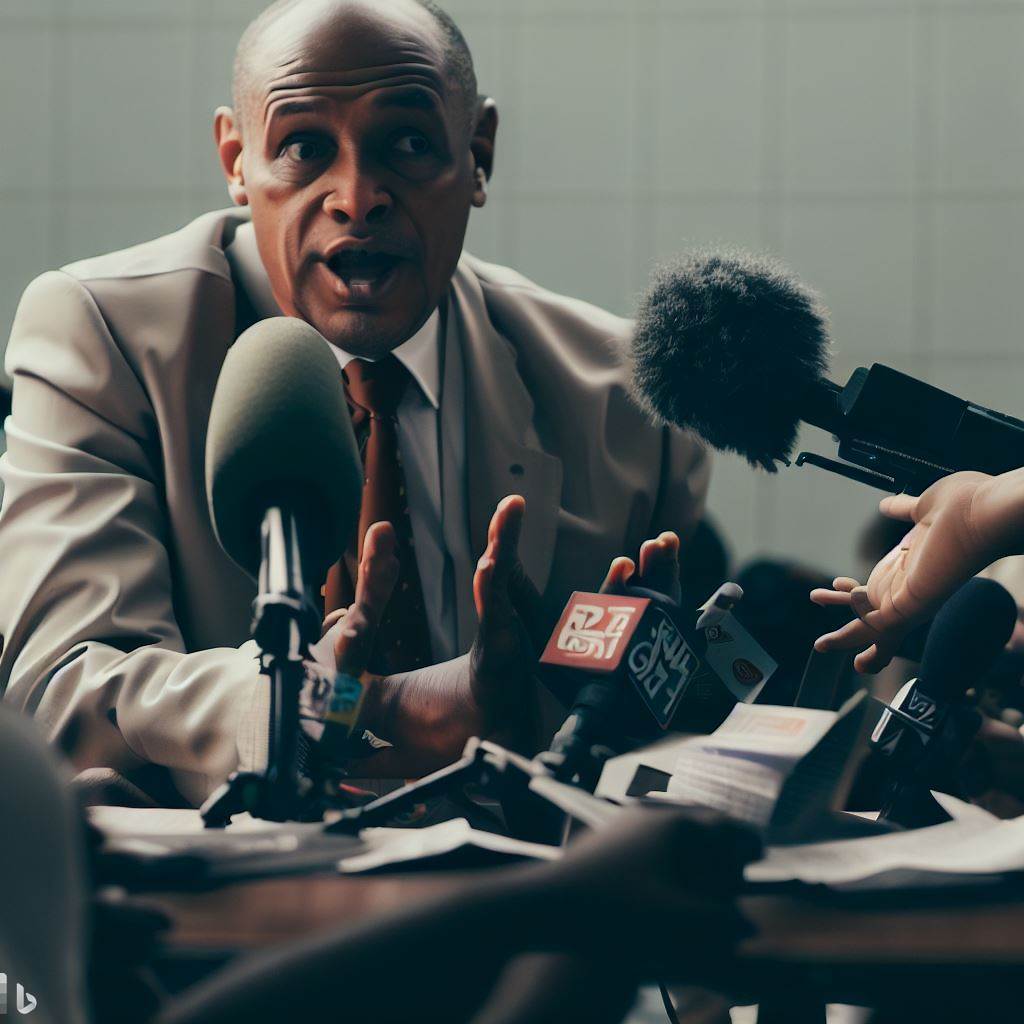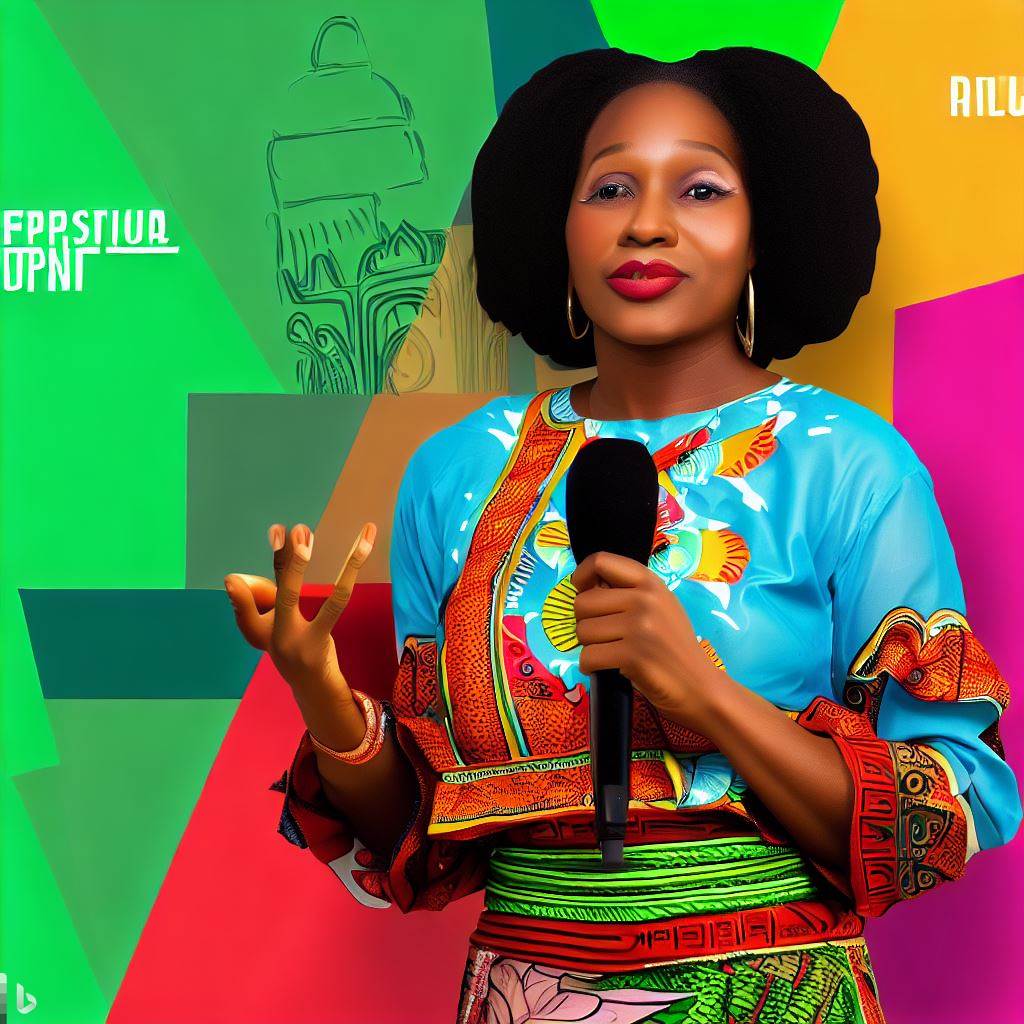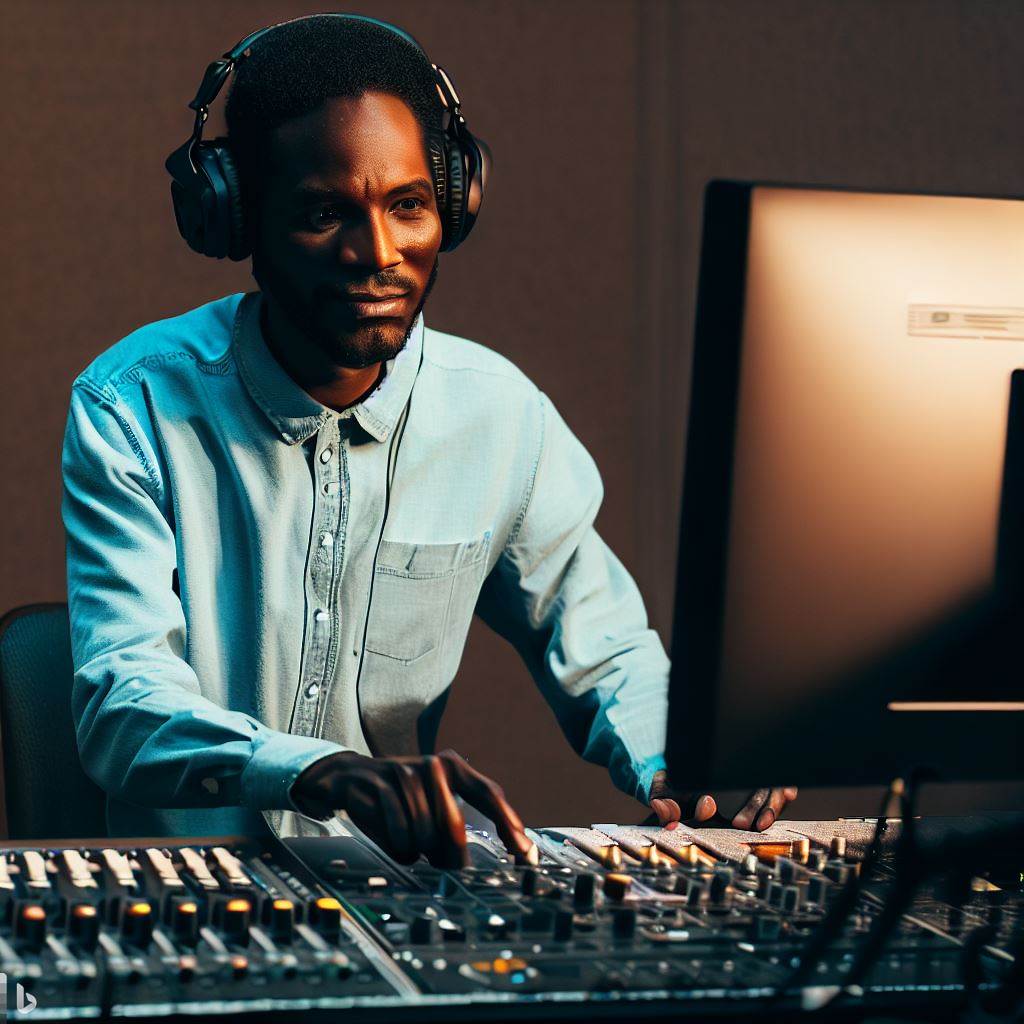Introduction
Journalism in Nigeria entails the collection, verification, and dissemination of news and information.
It serves as a vital medium for conveying timely and accurate information to the public.
In a democracy, journalism plays a crucial role in promoting transparency, accountability, and citizen participation.
The importance of journalism in a democracy cannot be overstated. It acts as a watchdog, holding those in power accountable for their actions, and acts as a bridge between the government and the citizens.
Through investigative reporting, the media uncovers corruption, exposes wrongdoing, and sheds light on issues affecting the society.
This blog post aims to shed light on the significance of journalism in Nigeria’s democratic system.
By analyzing the role of journalism in promoting good governance, facilitating public discourse, and fostering informed decision-making, we can gain a deeper understanding of its impact on the nation’s development.
Additionally, this blog post seeks to highlight the challenges faced by journalists in Nigeria, such as censorship, harassment, and limited access to information.
By raising awareness about these obstacles, we can advocate for press freedom and support the growth of a vibrant and independent media industry.
In a nutshell, journalism is an integral part of Nigeria’s democracy. Its role in providing accurate and unbiased information, promoting accountability, and empowering citizens cannot be understated.
By recognizing its importance and supporting the work of journalists, we can contribute to the strengthening of Nigeria’s democratic institutions.
History of Journalism in Nigeria
A. Early newspapers and their role in independence movements
- The history of journalism in Nigeria dates back to the early 19th century.
- The first newspaper in Nigeria, “Iwe Irohin,” was established in 1859 by Reverend Henry Townsend.
- Early newspapers played a crucial role in Nigeria’s struggle for independence from British colonial rule.
- These newspapers served as platforms for nationalists to advocate for self-governance and expose colonial injustices.
- Newspapers such as “The Nigerian Pioneer” and “The Lagos Weekly Record” were instrumental in raising political consciousness among Nigerians.
- Journalists like Herbert Macaulay used their writing to mobilize the masses, leading to the formation of political parties.
- Through their journalistic endeavors, these early pioneers paved the way for Nigeria’s eventual independence in 1960.
B. Government regulation and censorship during military rule
- With the onset of military rule in Nigeria after independence, journalism faced increased government regulation and censorship.
- The military regimes viewed the press as a threat to their hold on power and sought to control information flow.
- Newspapers critical of the government were shut down, journalists were arrested, and censorship laws were enforced.
- The Decree 4 of 1984 passed by General Muhammadu Buhari’s regime stifled freedom of the press by making it an offense to criticize the government.
- Many journalists went into exile or faced persecution for their commitment to reporting the truth.
- During this period, journalism in Nigeria became a dangerous profession, with many journalists risking their lives to uncover corruption and human rights abuses.
C. Transition to a democratic system and press freedom challenges
- The return to democracy in Nigeria in 1999 brought hopes for press freedom, but challenges still existed.
- The democratic system opened avenues for media pluralism and freedom of expression.
- Several private newspapers and broadcasting stations emerged, providing diverse sources of news and information.
- However, there have been instances of journalists facing intimidation, harassment, and attacks for reporting on sensitive issues.
- Journalists often face legal threats, defamation charges, and assaults by powerful individuals or interest groups.
- The lack of legislation protecting journalists and ensuring their safety hampers press freedom in Nigeria.
- The government’s use of security agencies to harass and intimidate journalists remains a concern.
- The rise of online journalism and social media has posed new challenges, with the government attempting to regulate online content.
- Despite these challenges, Nigerian journalists continue to play a vital role in holding the government accountable and promoting transparency.
- Their investigative reports have exposed corruption, spurred public debates, and contributed to a more informed citizenry.
In short, the history of journalism in Nigeria reflects the struggle for independence, government regulation during military rule, and the challenges faced in achieving complete press freedom in a democratic system.
Despite these obstacles, Nigerian journalists persist in their pursuit of truth, serving as watchdogs of democracy and catalysts for social change.
Read: Cultural Influence on Makeup Artistry in Nigeria
Journalism’s Role in Nigeria’s Democracy
A. Promoting accountability and transparency
Journalism plays a crucial role in promoting accountability and transparency within Nigeria’s democracy.
Transform Your Career in Nigeria
Discover unmatched expertise with our personalized Career Consulting service. Navigate Nigeria’s job market with a strategy tailored just for you.
Get StartedThrough investigative reporting, journalists hold government officials and institutions accountable for their actions.
By shining a light on corrupt practices, journalists expose wrongdoing and ensure that those responsible are brought to justice.
Additionally, by providing unbiased and fact-checked information, journalism helps to build public trust in democratic institutions.
B. Informing citizens about government policies and actions
One of journalism’s key functions is to inform citizens about government policies and actions.
By reporting on legislation, budgetary decisions, and other policy matters, journalists ensure that citizens are aware of the decisions that affect their lives.
This information empowers citizens to actively participate in the democratic process, by holding elected officials accountable and making informed choices during elections.
C. Facilitating public dialogue and participation
Journalism also plays a vital role in facilitating public dialogue and participation within Nigeria’s democracy.
By providing a platform for diverse voices and opinions, journalists ensure that all segments of society are heard.
Through interviews, debates, and commentaries, journalism fosters a robust exchange of ideas and encourages citizens to engage in discussions about important social and political issues.
This dialogue is essential for a healthy democracy, as it allows for the exploration of different perspectives and the development of consensus on public policies.
D. Advocating for human rights and social justice
Another important role of journalism in Nigeria’s democracy is advocating for human rights and social justice.
Journalists act as watchdogs, exposing human rights abuses, discrimination, and injustice within society.
By reporting on these issues, journalists raise awareness and mobilize public support for change.
They give a voice to marginalized communities and shine a spotlight on social issues that need urgent attention.
Journalism’s advocacy role contributes to the protection of human rights and the promotion of a more equitable and just society.
In fact, journalism plays a crucial role in Nigeria’s democracy by promoting accountability, informing citizens, facilitating public dialogue and participation, and advocating for human rights and social justice.
It helps to ensure transparency, empower citizens, foster dialogue, and drive positive change.
In a country like Nigeria, where democracy is still evolving, the role of journalism becomes even more critical in safeguarding democratic values and promoting a society built on justice, fairness, and equality.
Read: Training and Qualification for Makeup Artists in Nigeria

Challenges Faced by Journalism in Nigeria’s Democracy
A. Threats to journalists’ safety and freedom of expression
- Journalists in Nigeria often face threats to their safety due to their reporting.
- There have been cases of physical attacks, harassments, and even murders of journalists.
- These threats hinder journalists from freely expressing their opinions and reporting the truth.
- Fear of repercussions leads to self-censorship, limiting the dissemination of information.
B. Political interference and intimidation
- Political interference poses a significant challenge to journalism in Nigeria.
- Politicians often manipulate media outlets to promote their own agendas and silence opposing views.
- Journalists are frequently intimidated and pressured to align their reporting with specific political interests.
- This interference compromises the authenticity and credibility of information provided to the public.
C. Lack of media independence and biased reporting
- Nigeria’s media sector lacks sufficient independence from political and business influences.
- Media organizations rely heavily on funding from politicians and wealthy individuals, compromising their impartiality.
- Biased reporting is prevalent, with news outlets favoring certain political parties or individuals.
- This undermines the public’s trust in journalism and contributes to the dissemination of misinformation.
D. Inadequate training and professional standards
- Journalism in Nigeria suffers from a lack of comprehensive training and professional development programs.
- Many journalists enter the field without proper education or understanding of ethical standards.
- This leads to poor quality reporting, including inaccurate information and sensationalism.
- The absence of strict professional standards further tarnishes the reputation of journalism in the country.
In essence, journalism in Nigeria’s democracy faces several challenges that hinder its ability to provide accurate and unbiased information.
Journalists are threatened, leading to self-censorship and restricted freedom of expression. Political interference and intimidation further impede the authenticity of reporting.
The lack of media independence contributes to biased reporting and the dissemination of misinformation.
Additionally, inadequate training and professional standards impact the quality of journalism in Nigeria.
These challenges must be overcome to ensure a free and vibrant press that plays a crucial role in Nigeria’s democracy.
Publish Your Professional Profile, Business or Brand
Showcase your expertise, gain trust, and boost visibility instantly on Professions.ng.
Publish NowRead: Bridging the Gap: Foley Artist Opportunities in Nigeria’s Music Industry
Find Out More: Work-Life Balance Tips for Nigerian Music Directors
Case studies: Examining Journalism’s Impact on Nigeria’s Democracy
A. Coverage of election processes and outcomes
Journalism plays a crucial role in Nigeria’s democracy by providing comprehensive coverage of election processes and outcomes.
Through active reporting, journalists inform the public about candidates, their platforms, and the voting process, ensuring a well-informed electorate.
By acting as a watchdog, journalists expose irregularities, electoral fraud, and misconduct, holding authorities accountable for fair and transparent elections.
Through their active voice, journalists contribute to building trust and confidence in the democratic process among the citizens.
Furthermore, journalists facilitate open discussions and debates on election-related issues, fostering active citizen participation and engagement.
B. Investigative reporting on corruption scandals
An active journalism sector in Nigeria serves as a powerful tool to combat corruption scandals.
Investigative journalism uncovers and exposes corrupt practices, providing evidence and holding corrupt officials accountable.
By reporting on corruption cases, journalists create public awareness, putting pressure on the government to take action against corrupt individuals.
Journalists encourage transparency and help to rebuild public trust in democratic institutions by shedding light on illicit activities.
Their active and persistent reporting on corruption scandals ensures a more accountable and transparent government.
C. Campaigns for social reforms and policy changes
Journalism actively campaigns for social reforms and policy changes, acting as a catalyst for positive changes in Nigeria’s democracy.
Through investigative reporting, journalists expose societal issues and inequities, resulting in public discourse and demands for reforms.
By highlighting these issues, journalists raise awareness and put societal pressure on policymakers to address them effectively.
Their active role in reporting on social reform campaigns ensures that citizens’ voices are heard and acted upon.
Additionally, journalists play a vital role in shaping public opinions, mobilizing citizens to actively participate in pushing for policy changes.
In general, Nigerian journalism’s impact on democracy can be seen through its coverage of election processes and outcomes, investigative reporting on corruption scandals, and campaigns for social reforms and policy changes.
Journalists play an active role in informing the public, holding authorities accountable, and fostering citizen engagement.
Their active voice contributes to building trust, transparency, and accountability in Nigeria’s democracy, making journalism a crucial pillar of democratic society.
Read: Building a Makeup Artist Portfolio in Nigeria: Tips & Tricks
Solutions for Strengthening Journalism in Nigeria’s Democracy
A. Enhancing legal protections for journalists and press freedom
- Strengthening existing laws to protect journalists from threats and attacks.
- Implementing effective mechanisms to investigate and prosecute those who violate journalist’s rights.
- Creating a conducive legal environment for media freedom and independence.
- Establishing an independent body to address cases of press freedom violations.
B. Promoting media professionalism and ethical standards
- Encouraging media organizations to adhere to a code of ethics and enforce ethical practices.
- Conducting regular workshops and training programs to enhance journalists’ understanding of ethical standards.
- Encouraging self-regulation within the media industry to maintain high professional standards.
- Developing a culture of accountability and transparency among journalists.
C. Investing in journalism education and training
- Enhancing curriculum and resources in journalism schools to reflect the evolving media landscape.
- Providing scholarships and grants to aspiring journalists to pursue quality education.
- Collaborating with international organizations and experts to provide training programs for journalists.
- Encouraging continuous professional development for journalists through workshops and seminars.
D. Supporting independent media organizations and initiatives
- Providing financial support and grants to independent media organizations to foster their sustainability.
- Encouraging collaborations and partnerships among media organizations to amplify their impact.
- Creating a supportive environment for the establishment of new media organizations.
- Recognizing and celebrating the achievements of independent media initiatives to inspire others.
All in all, strengthening journalism in Nigeria’s democracy requires a multi-faceted approach.
By enhancing legal protections, promoting professionalism and ethics, investing in education and training, and supporting independent media organizations, Nigeria can create an environment where journalism can thrive and fulfill its crucial role in democracy.
These solutions should be implemented in a coordinated manner, involving all stakeholders, to ensure a vibrant and free press in Nigeria.
Conclusion
Journalism plays a critical role in Nigeria’s democracy by providing reliable information, holding leaders accountable, and giving voice to the people.
With a free and vibrant press, citizens can make informed decisions and actively participate in the democratic process.
However, press freedom in Nigeria faces various challenges, including censorship, harassment, and attacks on journalists.
It is crucial for individuals to support quality journalism and press freedom initiatives to safeguard democratic values.
By subscribing to reputable news outlets, engaging with diverse perspectives, and advocating for media pluralism, we can strengthen democracy in Nigeria.
Together, let us encourage transparency, defend the freedom of the press, and foster an informed and empowered citizenry.




